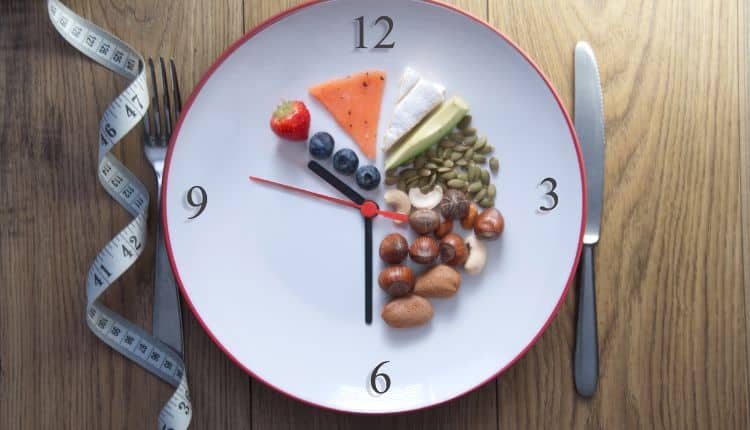It’s that time of year again! The summer months bring with them a plethora of temptations, from trips to the beach and outdoor parties to vacations and road trips. All this extra activity can make sticking to your ketogenic diet much harder than it needs to be. However, staying on track for the rest of the year doesn’t have to be so challenging if you know what to expect as you get into the second half of the year.
From more tempting foods at restaurants and cafés, to family reunions and vacations, there are a variety of factors that can make keeping your New Year’s resolutions easier or more difficult for you. These changes don’t just come in September though, they gradually increase throughout the year until they reach their peak in June—the perfect time to take stock of your goals, reset your focus on what really matters most, and re-establish yourself as a committed member of your new community.
If you find yourself struggling with constant cravings and stress over missing a few days here and there while trying desperately to stay on track with your keto diet plan, read on for some fantastic tips on how you can maintain better self-control throughout the year.
Make tracking your food a habit
Tracking food is crucial not just to help you stay on track with your diet, but also to maintain healthy eating habits in the long run. While it may seem like a lot of work, the benefits of tracking your food are endless and include helping you to lose weight and keep it off as well as preventing blood pressure and diabetes complications.
The best thing about tracking is that it doesn’t need to be done in a specific way. Instead, it is more about making a conscious effort to keep track of your meals and snacks, as well as having a mental note of how many calories and macro nutrients you are consuming throughout the day. These basic guidelines can be applied to any diet, whether you’re following a keto diet, paleo diet, vegetarian diet, or even a vegan diet. While it may seem like a hassle to follow a strict tracking system, the results are greatly rewarding in the end.
Don’t skip meals – eat every 3-4 hours
Many people report that they feel much more energised and motivated when they are consuming high-quality, protein-packed meals every 3-4 hours. If you find yourself feeling particularly low on energy, you can experiment with increasing your meal frequency to help boost your energy levels. Increased meal frequency is not only beneficial for those following a keto diet, but it can also be applied to those who are trying to maintain a healthier diet, whether you’re trying to build muscle or prevent weight gain.
If you find yourself skipping meals while you’re trying to get back on track with your keto diet, try increasing your meal frequency to help prevent low energy and weight gain while staying on track.
Keep an eye on portion sizes and count your macros
When you’re consuming a high-fat, high-protein diet, it’s inevitable that you’ll be consuming more calories than usual. While there are many bloggers and social media influencers who are quick to preach about the dangers of calorie counting, the truth is that it’s absolutely fine to count the number of calories you consume.
The best way to do this is by keeping an eye on your portion sizes and making sure that you are consuming a balance of carbohydrates, proteins and fats while on a keto diet. This can be especially useful if you find yourself getting bored with meals or experiencing cravings, as it will help to make sure that you get the nutrients you need for optimal health.
Plan ahead
While it’s great to track your food, it’s just as important to plan ahead and know what to expect from your meals and snacks. Planning your meals and snacks in advance will help to prevent you from falling into the “fresh food trap”, which is when you get caught up in the moment and decide to go out and grab something from a fast-food restaurant or the local grocery store for dinner.
While it can be tempting to go out for dinner or to the nearest café with your friends or family on the weekend, try to plan ahead and stay on track during the week. If you know that you’re going to have an upcoming family reunion or trip that you simply can’t skip, try to plan meals that you can prepare ahead of time and bring with you so that you don’t have to spend too much time in the kitchen while staying on track with your diet.

Find fun ways to stay busy and prevent boredom eating
When you’ve been following the same diet plan for 7-10 days and you still find yourself craving salty snacks or sugary treats, try to find some fun ways to stay busy while you’re on track. There are a variety of ways that you can stay busy and prevent boredom eating while you’re on a diet, from following a sport or learning a new skill, to taking part in a hobby that you’ve always wanted to try. If you find yourself craving a particular type of food while you’re trying to maintain a healthy diet, try to find some activities that you can do that are similar, but healthier.
Communicate more with your friends and loved ones
Keeping in touch with your friends and loved ones is so important for everyone, not just those following a diet. If you find yourself wanting to go out with your friends or family while you’re on a diet, try to keep in mind that they don’t need to be on a totally different diet as well. Instead, try to keep the conversation focused on the topic of healthy living and make sure that they don’t start talking negatively about low-carb diets or other healthy eating plans. Try to have a conversation that is positive, encouraging, and supports others in maintaining a healthy lifestyle.
Decide why you’re on a keto diet
So many people get caught up in the diet itself, but don’t truly understand why they’re following a keto diet. Deciding why you’re on a keto diet can help you to better understand why you’re feeling the way that you are and what you need to do to stay on track. It can help to identify your cravings and emotional triggers and make sure that you’re not going overboard with any of them.
While it can be helpful to identify your emotional triggers, it’s also important to remember that they are just that — emotional. They are not a legitimate reason for you to backslide or allow yourself to gain weight. Once you’ve identified your emotional triggers and what they are, you can make a plan to better control them and prevent yourself from falling back into bad habits.
Stick to your routine day-to-day
While it may seem like it, you don’t need to completely overhaul your diet and completely eliminate all of your favourite foods to maintain a healthy diet. Instead, you can choose to make small tweaks that will help you to better regulate your food intake while sticking to your daily routine. For example, if you have a favourite snack that you would normally have while you’re on a trip, try to keep it out of the house and consume it when you’re out and about.
If you normally have a certain type of drink at a café or restaurant, try to find something else that is similar, but healthier. By simply keeping these small tweaks in mind and making an effort to stay true to your diet plan while sticking to your routine, you can prevent yourself from falling into the “fresh food trap” and consuming extra calories while staying on track with your diet.
Conclusion
The summer months are a perfect opportunity for you to take a break from your diet and allow yourself to indulge in more tempting foods, while also extending your social calendar and enjoying more time outside with your friends and family. However, you don’t have to let these factors completely derail your progress, you can use them to your advantage and make small tweaks that will help you to stay on track with your diet plan. These tips can help you to better manage your cravings and prevent yourself from falling into the “fresh food trap”, while also making sure that you’re sticking to your routine and eating your daily meals and snacks on time.




